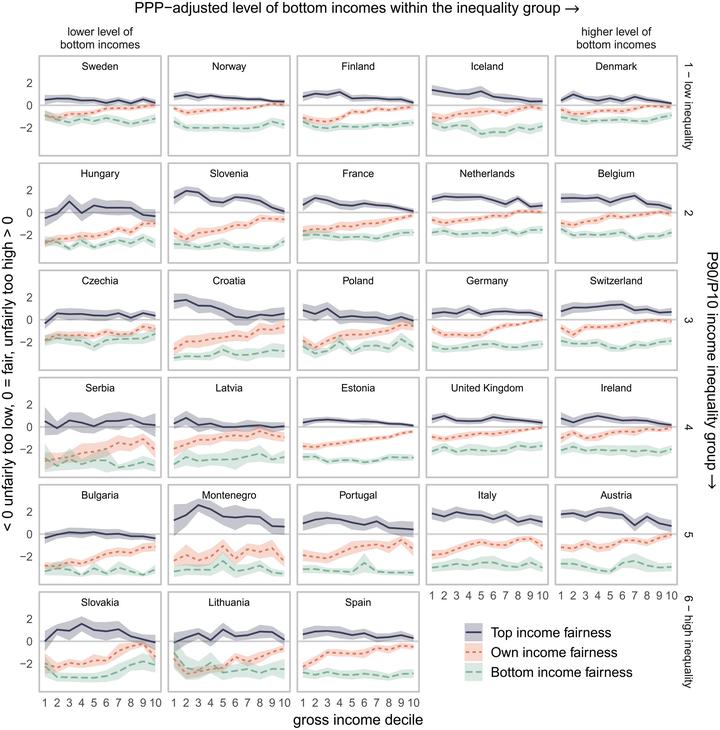Perceptions of Inequalities and Justice in Europe (PIJE)
 The Inequity Z: Income Fairness Perceptions in Europe across the Income Distribution
The Inequity Z: Income Fairness Perceptions in Europe across the Income Distribution
Short project description
The project aims to analyze how inequalities are perceived and evaluated across Europe, to identify the socio-economic factors shaping whether people regard inequalities as fair or unfair, and to examine how these evaluations influence social, political, and policy outcomes such as social cohesion, trust in democratic institutions, and political engagement. The project was funded by the Leibniz foundation and run from January 2020 to January 2025 and was primarily located at the DIW. The project was headed by Stefan Liebig and Sandra Bohmann and I was part of the team from University Vienna and then from FU Berlin. Other collaboration partners included Guillermina Jasso from (NYU), Thomas Hinz (University of Konstanz), Simone M. Schneider (Universitat Pompeu Fabra & MPI for Social Law and Social Policy) and others.
As part of the PIJE project, I examined how people perceive and evaluate inequality and the consequences these perceptions have, resulting in several publications. In The Inequity Z: Income Fairness Perceptions in Europe across the Income Distribution, we introduced the concept of the “inequity Z” showing how fairness evaluations of own, top, and bottom incomes consistently reveal widespread consensus within countries and how these perceptions rise with actual inequality. In Subjective Inequity Aversion: How Unfair Inequality Affects Subjective Well-Being, we demonstrated that perceptions of unfairness—especially regarding one’s own and top incomes—are closely linked to lower subjective well-being, highlighting the importance of subjective evaluations of inequality in explaining individual well-being. Finally, in Informing about Gender Inequality: Beliefs about the Gender Pay Gap and Support for Gender Equality Policies, we used novel survey experiments in Germany and the US to test whether providing information about the gender pay gap (varying by type and size) influences policy support. While we find that information shifts perceptions and fairness beliefs, these changes translate into only limited increases in support for policies to reduce the gender pay gap. This suggests that information campaigns alone are unlikely to generate sufficient political support to substantially improve women’s position in the labor market. The paper is co-authored with Jule Adriaans, Sandra Bohmann, Ole Brüggemann, and Cristóbal Moya.